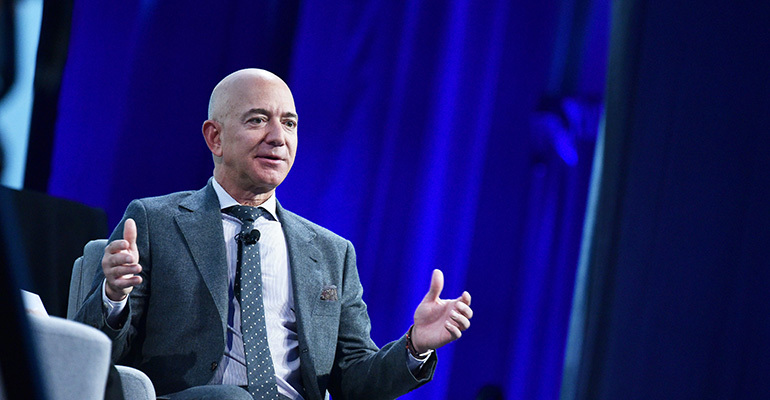Amazon has excelled more in entrepreneurship than anyone else, with independent sellers accounting for more than half of its sales. Wealthy investors and experienced entrepreneurs see this as an opportunity to make money — and are in a hurry to get caught up in the trailer behind the money machine of the richest man in the world.
All this is part of a process that cannot be reversed: people increasingly want to shop online. Therefore, Amazon is on the third line of the ranking of the most expensive companies in the world. Its capitalization is about $3 trillion, so it is second only to Apple ($2 trillion) and Microsoft ($1.64 trillion). In 2019, Amazon sold more than $300 billion worth of goods, which is 20% more than in the previous year. According to marketers, Amazon accounts for roughly 40% of all US online shopping spending.
Other sellers who trade on the Amazon platform are essentially the key to success because there are over 2 million independent sellers in the world who sell products on various marketplaces, and these companies have sold 3.5 billion products through Amazon in the last year. There are over 30,000 sellers in the United States and their products sell over $1 million a year. Most of them depend on Amazon for logistics, shipping, returns and customer service. But for Amazon, these sellers are also vital: they account for about 60% of sales, which is twice over 10 years ago.
Expectedly, Amazon benefited from the pandemic, with sales up nearly 60% year-over-year to $3 billion. This is a tremendous risk — tying your business destiny to the giant of online sales, because Amazon is constantly changing the rules for selling goods, forcing the seller companies to follow these rules strictly. Amazon is strict about making sure you don’t ignore a buyer’s question or make fake positive reviews. If the best happens, Amazon will downgrade your ranking in seller lists. In the worst, you will be removed from the platform forever.
But for a seller on the most popular platform in the world, there is a more serious problem: Amazon could notice your commercial success and launch its competing product — it happened with coffee mugs and sheets under the AmazonBasics brand.
The company has been accused many times of unfairly borrowing someone else’s idea and identifying opportunities to undermine the position of sales leaders in their favor. Some sellers even accuse Amazon of forcing sellers to agree to unfavorable terms and then suddenly removing them from the platform with brief explanation or compelling reasons.
And recently, the governments of Europe and the United States published a report accusing Amazon of violations of the law. Amazon challenged these allegations and insisted that the company had no reason to plagiarize the products of other sellers since it was not profitable for the company itself commercially.
For all that, most Americans go to Amazon if they want to buy something. A key part of Amazon’s success is its SEO strategy, which takes products to the top of search terms, rankings and reviews. In the digital world, this is the major path to success.
Chris Bell, campaign manager at Perch, says customers claim live reviews are more important to them than the product brand. Sebastian Remarks, a private investor and top manager, is sure that it is worth turning a blind eye to all the negativity in the press since Amazon is the world’s largest entrepreneurial machine. When asked if Amazon is using seller data to bolster its position, he said yes, but called for these little negative factors to be compared with all the good things that Amazon has created. Behind all this, lies hundreds of billions in the value of goods, millions of entrepreneurs, sellers and growth rates dozens of times higher than that of the fastest-growing economy in the world.

